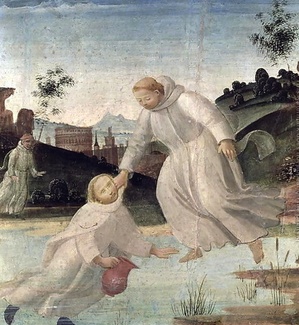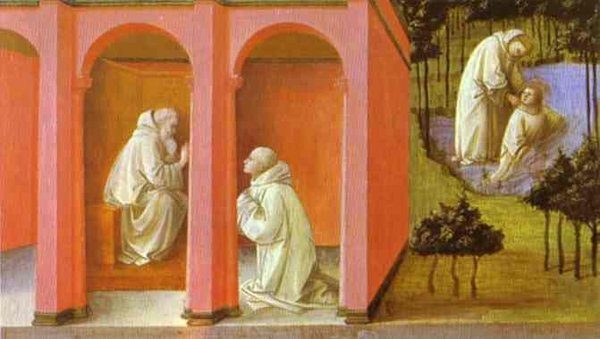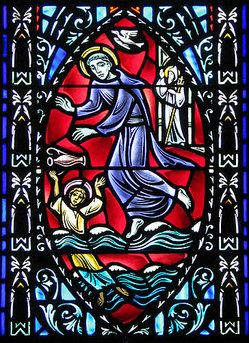In the Benedictine tradition today is the feast of the young disciples of Saint Benedict, Maurus and Placid. The tradition holds that after the holy Benedict had established his twelve monasteries at Subiaco, noble Christians came from Rome, presenting their sons to be raised and educated among the monks. Not unusual given the state of Roman culture at that time. Among them were Maurus, an adolescent, the son of Euthicus, and Placid son of the patrician Tertullus. These young people become the first “oblates” in monastic life; they become models for all Benedictine Oblates today.
While the names of Maurus and Placid are not well known in “normal” Catholic circles except in Benedictine monasteries, we do recognize a few things today because of them. The oblation of the family to the Man of Blessing is where we get the idea of an Oblate in the Benedictine charism. You may have heard of the Blessing the Sick through the Intercession of Saint Maurus or even be familiar with the famous story of being saved from drowning.
The narrative of Placid being saved is given to us in the Dialogues of Saint Gregory the Great. There Gregory tells us Maurus and Placid went to fetch water in the lake. Placid falls into the water. Saint Benedict, aware of the situation due to God’s grace, sends Maurus to rescue the child Placid. Maurus, having received his abbot’s blessing, runs over the surface of the water, grabs Placid by the hair, pulls him out, and then runs back over the water to dry land, carrying the little one in his arms. Saint Benedict attributes the miracle to Mauris’ obedience; Maurus attributes it to Saint Benedict. But it was Placid who settles the debate: “When you pulled me out of the water, he says, I saw over my head Father Abbot’s hood, and I saw that it was he who pulled me from the water.” Listening to the Collect it seems that obedience wins: both Benedict and today’s saints are correct.
For us the story of Saints Maurus and Placid is very much connected with the notion of to whom do we belong; whom do we follow. That is, with whom do we share friendship (on the supernatural level)? God or creation? What we see in these two is the development in Benedict’s line of spiritual paternity of persevering in the seeking of God. One can only wonder what better eye witnesses there could be than Maurus and Placid in the mercy of God and the trust in Divine assistance in times of suffering. Perhaps this is why they are asked for intercession for the sick and why became patrons of Benedictine novices.


